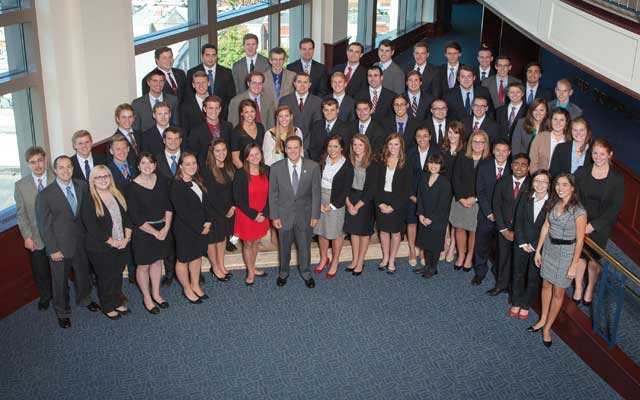A Young Conservative Makes the Case for Preserving America’s Heritage
Jordan Long /
Jordan Long, a Heritage Foundation intern this fall, delivered the following remarks at a graduation ceremony this month. The Foundry is republishing his short speech to recognize the work of our interns—the future conservative leaders of America.
Fellow interns, our time here has come to an end. May we wear forever our time as interns at the Heritage Foundation, promoting conservative public policy solutions, as a badge of professional and personal honor.
But exactly what is the “heritage” that is the namesake of this venerated institution? What precisely are conservatives trying to conserve?
Are we simply clinging onto the status quo? Progressives have said and will continue to say we are hidebound, opposed bitterly to progress, attached to musty and dusty and irrelevant ideas.
How can it be that as “young” leaders in our youth-obsessed and increasingly diverse nation, we are so firmly bound to quill and parchment and the ideas of some much maligned old dead white men who didn’t even have Facebook, let alone Twitter?
Perhaps as a history major I am not the best suited to answer such questions. But I will try.
As young people, it is quite natural to be defending and proselytizing on behalf of the freshest and most innovative ideas on man and how he ought be governed in history: that “we hold these truths to be self-evident, that all men are created equal, that they are endowed by their creator with certain unalienable rights, that among these are life, liberty, and the pursuit of happiness, that to secure these rights, governments are instituted among men, deriving their just powers from the consent of the governed.”
These words were penned more than 200 years ago. But that length of time pales in comparison to the thousand-year reigns of much more established theories in the organization of human affairs: despotism, aristocracy, plutocracy, warlordism, tribalism, empire. The animating principle of these regimes has always been the same: the unfettered exercise of power by those who happen to possess it at the time.
The notion of an enlightened philosopher king and his wise counselors, centrally planning an economy and society from an imperial capital for the benefit of his ignorant subjects, is nothing new. The administrative state is nothing new.
In fact, it is deeply ancient. Much more ancient than the seemingly old system of ordered liberty our Founding Fathers gave voice to in Philadelphia in 1776, and the constitutional structure they negotiated in that same city in 1787. A republic of free men, under God, animated by a spirit of liberty, secure in their natural rights, self-governing, with the freedom to retain the fruit of their labors, and radically equal before the law—this is what is unprecedented, and truly cutting-edge, in human affairs.
It is central planning and bureaucracy that are stale. The vision of Jefferson and Madison still smells like roses.
It is our task as young Americans to conserve the Founding heritage of ordered liberty, which has created the most prosperous and freest society that man has yet known. Our time here at Heritage has given us the tools we need to succeed in rejecting cynicism and bearing the brunt of our heavy but profoundly joyous national duty: protecting and propagating, in the words of Lincoln, the last best hope of Earth.
Do you want to intern at Heritage? Our paid interns are given substantive work, acquire policy expertise, and build marketable skills. The deadline to apply for summer is February 1

